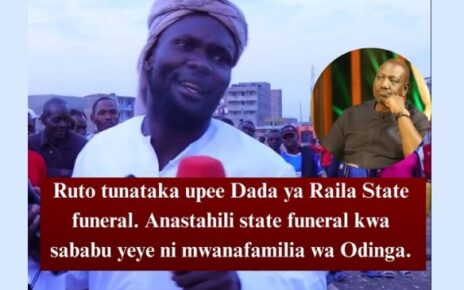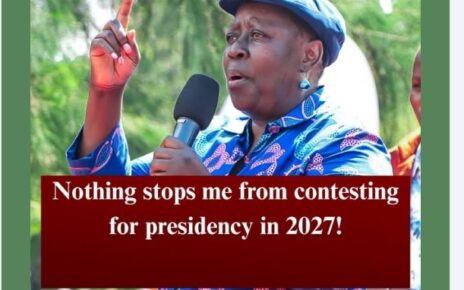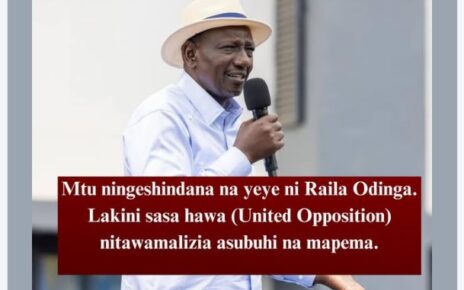The recent remarks by outspoken political activist Calvin Okoth, popularly known as Gaucho, have reignited discussions about succession and political loyalty within the Luo community following the death of Raila Amolo Odinga. Gaucho argued that the Luo community will continue to rally behind the Odinga family because Raila did not publicly name a political successor before his passing. His comments reflect the deep emotional and historical ties between the Odinga family and the Luo nation, a relationship that has shaped Kenya’s political landscape for decades.
According to Gaucho, Raila’s political journey and the sacrifices he made for democracy in Kenya created a level of trust and admiration that transcends ordinary politics. For many supporters, Raila was not just a politician but a symbol of resistance, reform, and hope. Gaucho believes that because of this, the Luo community feels morally bound to continue following the Odinga lineage, especially in the absence of a clear directive from Raila himself. Without a named successor, he argued, the people naturally look to the Odinga family for guidance and leadership continuity.
Raila Odinga’s political career spans more than four decades, during which he became the face of opposition politics in Kenya. His unwavering stand against dictatorship, corruption, and bad governance earned him a loyal following, particularly among the Luo people. Over time, the Odinga name became synonymous with political activism and the fight for justice. It is therefore understandable why Gaucho insists that the Luo community will remain under the Odinga family’s influence even in Raila’s absence.
Furthermore, Gaucho’s sentiments point to a broader cultural and political phenomenon in Kenyan politics—the tendency of communities to rally around influential families or figures who have historically represented their interests. For the Luo community, the Odingas have played that role since the time of Jaramogi Oginga Odinga, Kenya’s first Vice President and Raila’s father. The political dynasty he founded continues to command deep respect, symbolizing both heritage and identity.
However, Gaucho’s statement also raises questions about the future of Luo politics and leadership renewal. Some observers believe that continuing to depend solely on one family could limit opportunities for new leaders to emerge. Others argue that the Odinga family still commands unmatched respect and political capital, and that their leadership can provide stability as the community navigates a period of political uncertainty.
Gaucho’s remarks capture the complex emotions and loyalties that define Kenyan politics, particularly within the Luo community. His belief that Luos will continue following the Odinga family underscores the enduring legacy of Raila Odinga and the absence of a clear successor to fill his shoes. Whether this loyalty will eventually shift to new leaders or remain centered around the Odinga name remains to be seen. But one thing is clear: Raila Odinga’s influence on Kenyan politics—and on the hearts of his people—will not fade anytime soon.



